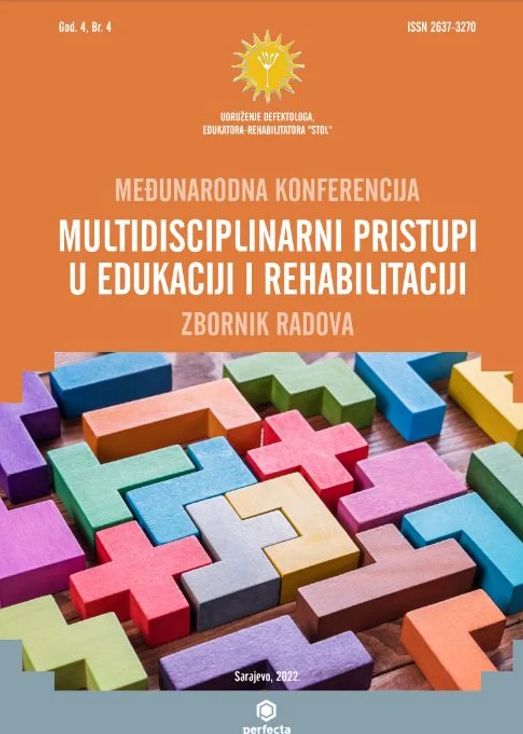EGZEKUTIVNE FUNKCIJE KOD INSTITUCIONALIZOVANE DECE BEZ RODITELJSKOG STARANJA
EXECUTIVE FUNCTIONS IN INSTITUTIONALIZED CHILDREN WITHOUT PARENTAL CARE
Author(s): Milica G. Gligorović, Nataša BuhaSubject(s): Social Sciences, Education, Psychology, Educational Psychology, Neuropsychology
Published by: Udruženje defektologa, edukatora-rehabilitatora (STOL)
Keywords: executive functions; institutionalized children;
Summary/Abstract: Institutional life of children without parental care is a significant risk factor for socio-emotional and cognitive development. Given that previous studies have focused mainly on behavioral characteristics, attachment, attention, speech and language skills, and intellectual functioning, the aim of this pilot study is to determine the level of executive functions (EF) development in institutionalized children with typical intellectual abilities. The sample included twenty-four children, of both sexes (58.3% of boys; N = 14), aged between 8 and 15 years (AS = 13.5; M = 1.64). The BRIEF scale (Behavior Rating Inventory of Executive function) was used to assess EF, and the results were analyzed in relation to the norms given in the manual. The obtained results indicate that children living in the institution show significant deviations in the level of development of almost all assessed aspects of EF (between 25% and 83% of children depending on the subscale). Clinically significant values are manifested both in the field of behavior regulation and in the area of metacognition, which, judging by the results, is an area that is particularly sensitive to the institutional environment (about 70% of children deviate at least 1.5 SD from the average). In the field of metacognitive abilities, the most pronounced difficulties are detected on the subscale which assesses planning and organization (83.3%). As far as behavioral regulation is concerned, most pronounced difficulties are observed in the domain of behavioral flexibility (70.8%). Children living in institution for up to a year have tendency to achieve worse results than children who have longer institutional experience, and this difference is statistically significant regarding behavioral flexibility (p = 0.033). No gender differences in EF development were found in these children. Having in mind the importance of EF for socio-emotional functioning, adaptive behavior and academic achievement, it is necessary to systemically include various stimulation programs that would be focused on developing metacognitive and regulatory abilities of children living in the institution.
Journal: Multidisciplinarni Pristupi u Edukaciji i Rehabilitaciji
- Issue Year: 4/2022
- Issue No: 4
- Page Range: 9-22
- Page Count: 14
- Language: Bosnian, Croatian, Serbian

